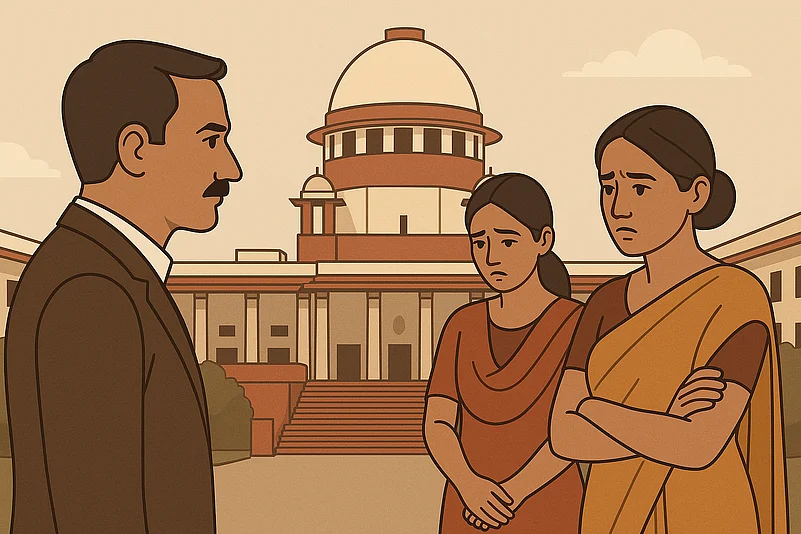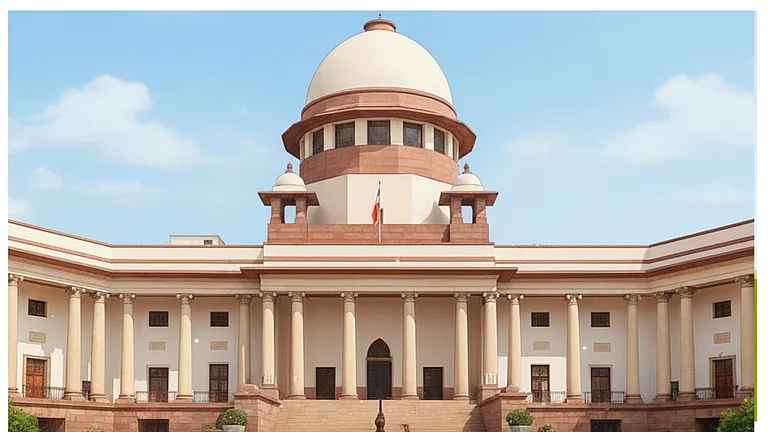
Summary of this article
Supreme Court upholds tribal inheritance under customary laws.
Hindu Succession Act excludes Scheduled Tribes’ property rights.
Court overturns Himachal HC order favouring tribal daughters.
The Supreme Court has said that daughters belonging to the Scheduled Tribes (ST) are not entitled to ancestral property rights under the Hindu Succession Act, 1956, as the said Act does not apply to them. Inheritance in tribal communities will still be governed by their customary laws.
This judgment was passed in the case Tirith Kumar & Others vs Daduram & Others (2024 SCC OnLine SC 3810) wherein the Court held that Scheduled Tribes are specifically excluded under the Hindu Succession Act, 1956 unless the central government decides otherwise by issuing a notification to this effect.
It set aside a 2015 order of the Himachal Pradesh High Court, which permitted daughters in tribal areas of the state to inherit property under the Hindu Succession Act, 1956. The High Court had ruled that this would prevent social injustice and curb the exploitation of women in tribal society. However, the Supreme Court refused to agree. It held that courts cannot extend the application of an Act beyond what Parliament has prescribed.
Why the Case was Filed
The dispute arose when parties belonging to the Sawara tribe of Himachal Pradesh, a Scheduled Tribe as defined under Article 342 of the Constitution of India, filed a civil case relating to inheritance of property. They contended that since they were Hindus, the Hindu Succession Act, 1956 applies to them.
The High Court accepted the argument, reasoning that laws must evolve with time and women should not face discrimination in the matter of property rights. It said daughters in tribal areas should inherit property like others governed by the Hindu Succession Act, 1956.
However, the matter reached the Supreme Court, which took a different view. The Supreme Court pointed out that tribal communities have separate customary laws and applying the Hindu Succession Act to them would be against the law as well as the constitutional provisions.
What The Supreme Court Said
The Supreme Court referred to several earlier judgments and constitutional provisions, explaining that Articles 341 and 342 of the Constitution allow the President to notify which castes or tribes are to be treated as Scheduled Castes or Scheduled Tribes. Any change to these lists can only be made only through a Presidential order.
Since the Sawara tribe remains a notified Scheduled Tribe, with no notification ever changing that status, its members remain governed by their traditional customs rather than by the Hindu Succession Act, 1956.
The Court referred to Section 2(2) of the Hindu Succession Act, 1956, which categorically says that nothing contained in this Act shall apply to the members of any Scheduled Tribe unless the central government, by notification in the Official Gazette, otherwise directs. Hence, the Supreme Court said, the Act does not apply to tribal communities by default.
The judgment also referred to the previous judgment of Madhu Kishwar vs State of Bihar, 1996, where it was held by the Court that the tribes of India have diverse customs among different groups in different regions, and therefore, the Hindu Succession Act, 1956 or the Indian Succession Act, 1925 does not ipso facto apply to them.
Importance Of The Judgment
The Supreme Court's decision makes certain that the unique customs and traditions of tribal groups remain protected under the Constitution.
At the same time, this judgment underscores a legal gap as far as gender equality in tribal systems of inheritance is concerned.
Though the Hindu Succession Act, 1956 grants equal property rights to daughters and sons among Hindus, most tribal customs still adhere to the patriarchal traditions of excluding women from ancestral inheritance.
The Court has not commented on whether these customs are fair or discriminatory. It has only restricted itself to making it clear that the extension of the Hindu Succession Act, 1956 to the Scheduled Tribes by the judiciary is not permissible and that it is only Parliament or the central government which can do so.
High Court Directions Set Aside
The Supreme Court found that the Himachal Pradesh High Court’s directions, particularly paragraph 63 of its judgment, had gone beyond the issues raised in the case. It said the High Court’s order was not based on any request by the parties or on issues formally before it.
The Supreme Court, therefore, ordered that the High Court’s directions, permitting daughters in tribal areas to inherit property under the Hindu Succession Act, 1956 be removed from record. With that, the civil appeal was disposed of, and all pending applications listed before it were closed.
What This Means Going Forward
The judgment makes it clear that unless the central government issues a notification applying the Hindu Succession Act, 1956 to Scheduled Tribes, tribal inheritance will continue to follow customary law.
In other words, daughters from scheduled tribes can inherit property only if the customs of their tribe permit this. Otherwise, the rules will differ from those that apply to Hindus covered by the Hindu Succession Act, 1956.










